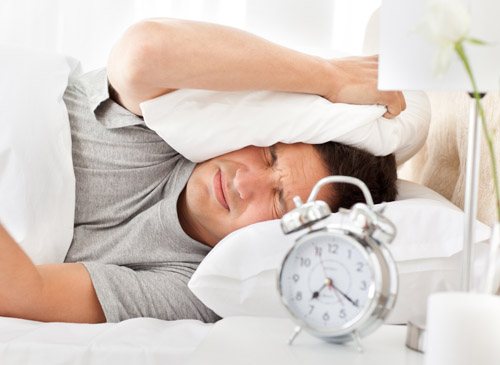
It’s happening again. You’ve been tossing and turning and just can’t get to sleep. You’ve tried lots of things, but what’s the solution? Here are some common reasons people have difficulty falling asleep and what you can do to solve them.
First: Are you watching TV in your bedroom? Consider not only turning that TV off in the evening, but getting that TV out of your bedroom all together. Experts agree: your bedroom should be a place for sleep — not for TV, not for the Internet, not for work. Are you checking emails ‘til the second you go to bed? Consider setting a designated time to check emails.
Although many people do expect in this day and age that co-workers will get back to them in a timely manner, it’s likely they’ll understand if you set last call for email responses to something like 8 or 9 pm. Even Facebook, Twitter or a news app can set your mind racing. Do what you can to quiet your mind, and keep the evening screen time to a minimum before bed.
Experts say that not only does the constant flow of information provided by your cell phone or tablet disrupt your ability to relax your mind at night, but the glowing light itself can disrupt the circadian rhythm needed to alert the mind that it’s time to sleep.
Related to circadian rhythms, consider what you can do about the light in your bedroom. Is the neighbor’s light keeping you up? Try a friendly chat with them about setting a timer. What about that full moon? Consider room darkening shades or even a sleep mask. Though you might feel silly, a sleep mask can do wonders for your sleep.
Are you feeling heartburn? Consider eating dinner earlier and avoiding late night snacking. The old adage of not eating after 8 pm might have some validity here. Consider avoiding spicy foods and foods high in fat or protein and definitely avoid caffeine in the late afternoon and evening.
Exercise can also help as long as you time it right. Certainly an early morning or late afternoon workout can help tire out your body just the right amount by bed time. Also be sure to wind down before bed – maybe a warm bath, some milk and cookies or caffeine-free tea. Meditation or yoga can also help clear the mind and relax the body for sleep.
Some people have difficulty sleeping because the room is too hot or too cold. If the room is too hot, consider using a fan, turning on an air conditioner, or cracking open the window. Cooler temperatures make a difference. Experts say that 60-67 degrees is the ideal sleeping temperature.
Other reasons people have difficulty sleeping: they don’t get to bed at the same time every night. Strive to get to bed around the same time, even on weekends. This will help get your body used to the routine schedule and will make falling asleep easier.
Finally, if you’re having trouble sleeping and it’s not your fault – say you have a snoring co-sleeper, or dear cat/dog who likes to visit at night, you might consider sleeping separately. Some people find success when they lock the pets out of the room, others do well with anti-snoring strips placed over the nose of the offending snorer, but others find that it’s just as easy to set up camp in a spare bedroom. Consider your options and make your best decision.
If you find that you’ve tried quite a few options and you’re still not sleeping well, it might be time to call a doctor. It’s important to get a good night’s sleep, and having difficulty sleeping for a long period of time could be a sign of a health issue. Whether your problem is an easy fix or requires a trip to the doctor, getting the recommended amount of sleep will make a big difference in your waking life. Sweet dreams!

